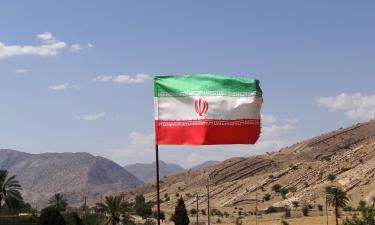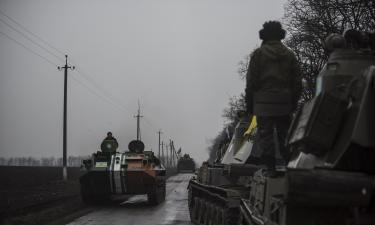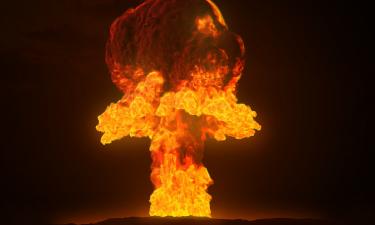The Yukos Affair: Putingarchy vs. Putinopoly
How two new approaches to understanding Putin's system throw up new explanations for the Yukos affair
Ever since Russian President Vladimir Putin came to power, Western commentators have sought to describe the system he has installed. Most, if not all of the terms they have found are Western imports, including "controlled democracy," "administered society," and even "populist authoritarianism."
The recent confrontation between the Kremlin and the oil giant Yukos gives fresh reason to consider what the system is - and its ability to cope with change. I would propose two alternative typologies, one "Putingarchy," the other "Putinopoly." Both throw up different interpretations of the latest political struggle, and both significantly play down the importance of a common feature in other interpretations, the role of Russia's upcoming parliamentary and presidential elections.
PUTINGARCHY
As the name suggests, Putingarchy reflects the type of economic and financial oligarchy that controls Russia, but ascribes a specific personal role to Putin. For the most part, Putin is a referee. His primary aim and obligation is to protect what is left of state authority as the government continues its exit from the economy and transforms itself from an owner to a regulator.
What remains to be privatized is almost always surrendered to powerful independent financial concerns. But after the chaotic Yeltsin years, the Kremlin knows that the oligarchs pose a danger to the state. Putingarchy curbs the danger. The task of Putin and his cadre - largely drawn from the security forces- is to ensure that no single oligarch, or group of oligarchs, is strong enough to go on to completely dominate the existing political order.
Putingarchy knows the state's only real defense against being completely brought under the heels of the oligarchs is through the manipulation of the law. Aware of this power, the oligarchs agreed with Putin when, shortly after his election, he said that past privatizations would not be revisited provided the oligarchs respected the country's tax code, and played only a limited role in federal politics. Stated differently: The oligarchs could keep their ill-gotten gains of the 1990s, start paying back something to the state, and stay in the political background.
This "social contract" defines the Putingarchy's political agenda. The Putingarchy is a regime that is not particularly proactive in the area of policy making. (Indeed, as Putingarchy is a substitute for a legal system of "checks and balances" adjudicating conflicts between the state and the world of business, Putin has very little real power to push forward a reform agenda.) When the Kremlin does make policy, it is most often an attempt to outmaneuver an oligarch - or set of oligarchs - from preempting state authority in some area in which wealth can be captured at little cost. For the oligarchs, this contract may not be the rule of law but it can in principle protect their wealth from a predatory state.
PUTINOPOLY
Putingarchy is an essentially defensive system, concerned with managing the retreat from the economy and worried at ceding political ground. Putinopoly is a more confident animal. It does not worry about economic power. In contrast but not necessarily in contradiction to Putingarchy, its concern is the control of political discourse. Putin and his team have taken an important message from the West and the Soviet past: Controlling the quality of political discourse is everything for someone in power. The message is the medium.
For Putinopoly, control of the message involves protecting the leader, the messenger, at almost all costs. To this end, the Kremlin is willing to sacrifice a few of its own, as it did in the latest "clean hands" operation to root out corrupt officials in the security forces--i.e., Putin's allies and protectors. The (pre-election) message was that the "dictatorship of law," Putin’s own description of his system, still has some meaning.
But for the Kremlin, appearing to fight corruption is more important than excising this Russian cancer. Even the corrupt and unworthy are welcomed into the Kremlin if the proper public genuflections are performed. The acts of contrition by the former governor of St. Petersburg, Vladimir Yakovlev, when he joined the government is a prime example ofPutin’s desire to crush public displays of political differences among the elite. Putinopoly avoids conflict in public; it is politically hesitant and reluctant to publicly alienate any perceived political challenger.
The best example of Putinopoly's distaste for politics in a normative sense is Putin's unwillingness to openly support a party in the upcoming autumn Duma elections. The Kremlin has also learned to appreciate political forces that are independent but do not necessarily oppose the Kremlin, such as the Union of Rightist Forces and Yabloko. They can function as think tanks proposing policy changes without being a political threat. Both these parties work within the system and are recognized for their efforts. On a number of occasions, Putin has acknowledged their contribution in a number of policy areas.
KHODORKOVSKY'S CHALLENGE
Both interpretations point to a state that is hesitant to accept realties beyond an agreed status quo, to accept change. And this may be the essence of the challenge posed by Mikhail Khodorkovsky, the head of Yukos.
Viewed through the optic of the Putingarchy typology, Khodorkovsky broke the "social contract." When officials struck, Khodorkovsky was beginning to best his peers, and his planned purchase of Sibneft (finally approved on 14 August) was set to create the largest oil company in Russia. One oligarch could have begun to dominate. And, by openly supporting parties not under Kremlin control, he was seen as entering the political realm and unsettling the political order.
But, more fundamentally and in a point that goes beyond the conventional wisdom, there is little choice but to re-negotiate the "social contract" agreed to three years ago. The logic of Putingarchy demands respectful distance between the state and business. The logic of Putin’s demand for Russia to double its GDP in a decade is that the power and needs of Khodorkovsky and his like, the only people who can make such growth possible, will change. Already, the reality of economic change over the past three years has shown that the efforts by Khodorkovsky and others to push Russia towards a modern market economy inevitably erode the respectful distance, because change by definition creates political differences. It is not Khodorkovsky's personal political intentions that ignited this conflict; a changing Russia is a sign of a system no longer capable of doing what it was designed to do.
Because Putingarchy is a static concept, a conflict may therefore have been inevitable. However, Khodorkovsky also made the mistake of clearly showing that, in his view, both Putingarchy and Putinopoly are impractical ways of moving Russia forward.
For Putinopoly, the concern is not immediate or specific: The parties Khodorkovsky supports are in no position to confront the Kremlin. It is Khodorkovsky's real or imagined political ambitions. Even though the Kremlin controls access to the media, which will most likely determine elections, Khodorkovsky's ambitions challenge the Kremlin's monopoly on political discourse. Putinopoly does not accept forced change - or the threat of change - from outside the state.
Russia's political culture is at a crossroads. If either Putingarchy or Putinopoly (or both) accurately reflect the nature of Putin’s system, they demonstrate that political-legal change in Russia is out of sync with the country's economic and financial change. The Kremlin's attack on Khodorkovsky and Yukos also tells us much about what has not changed in Russia after a decade of transition.
Even now, the development of a Russian democracy still seems ephemeral. At the heart of both Putingarchy and Putinopoly is honor and respect for authority - and this has nothing to do with building a democratic Russia.
How, or whether, the relationship between the Kremlin and monied interests will be agreed upon is unknown. Clearly, though, all players in this power struggle - the Kremlin and oligarchs - surely must have come to the conclusion that neither Putingarchy or Putinopoly resolves just what democracy and a market economy should mean in Russia. Putingarchy and Putinopoly are no substitutes for a social contract that protects the interests of all parties.
This article was first posted at Transitions Online (www.TOL.cz).
Subscribe to Pravda.Ru Telegram channel, Facebook, RSS!



